- Home
- Succulents
- Crassula
- Crassula Blue Bird Rubriventris
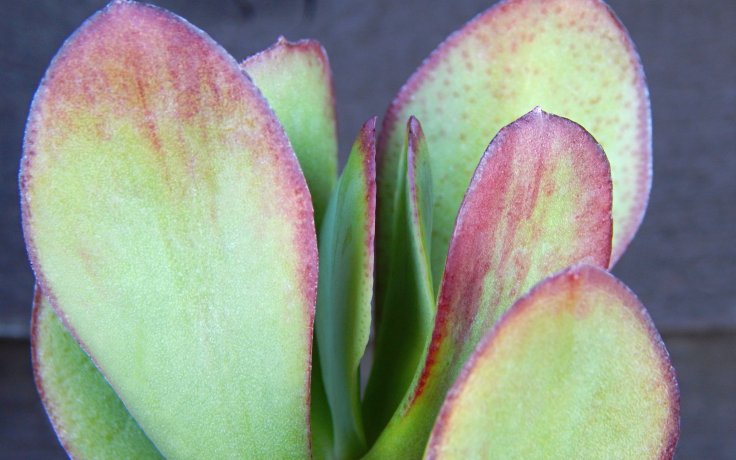
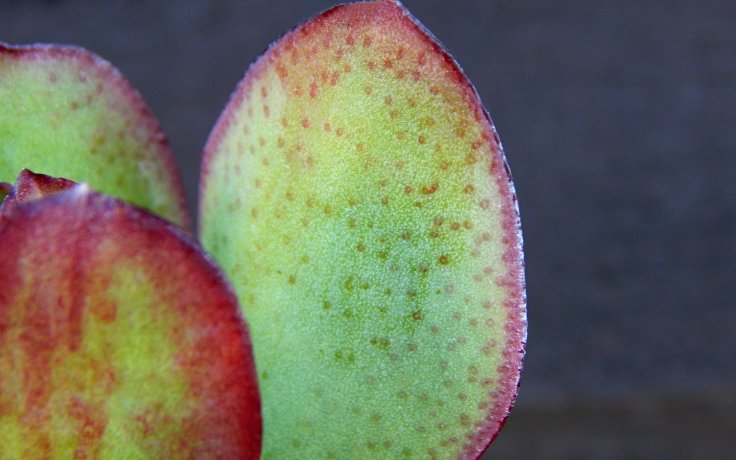
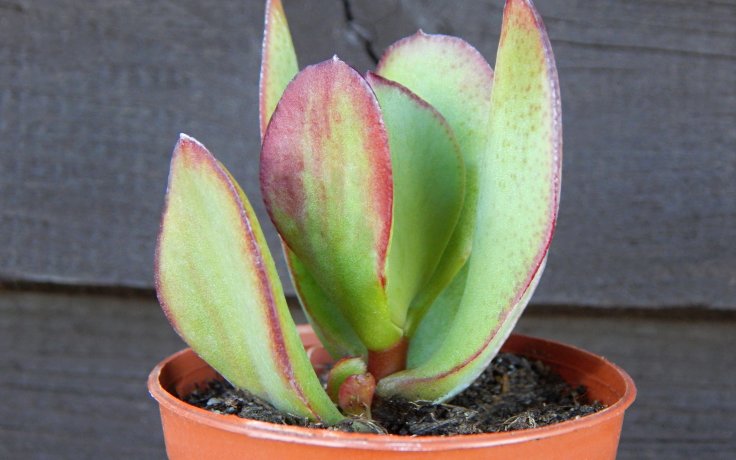
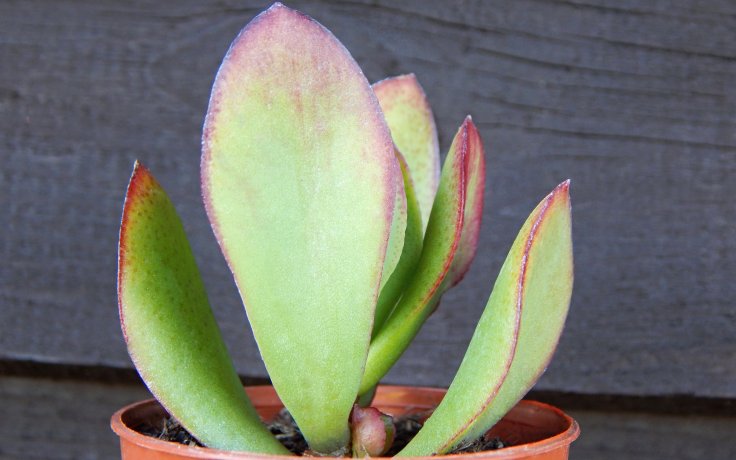
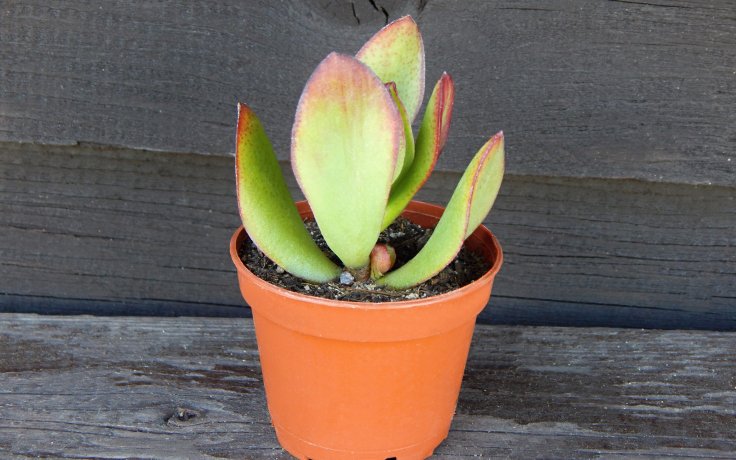
Crassula Blue Bird Rubriventris
Ideally placed in a sunny position, but can be placed in partial shade.
Always water a few days after the substrate has dried out. Reduce watering in winter.
It can tolerate -3.9 °C in the short term. The plant is not hardy.
This is a plant very closely related to Crassula Blue Bird Longifolia. It differs, however, by the deep red colour of the underside of the leaves.
Crassula Blue Bird Rubriventris, previously thought to be a hybrid of Crassula ovata and Crassula arborescens, is actually a form of Crassula arborescens subsp. undulatifolia. It was developed by selective breeding from plants of this subspecies and is commercially known as Crassula Blue Bird. Crassula Blue Bird was first described by Dr. B. K. Boom in 1963 in the Dutch journal Succulenta. The Rubriventris form is distinguished by the deep red underside of the leaves.
It is a robust plant with dark green leaves and a thin waxy layer on their surface that gives them a blue-green tinge. In full sun in summer the leaves turn blue-white with red edges. The leaves are pointed and more or less bent. The old leaves dry naturally and the plant branches itself to form a tree with a thick trunk and compact crown.
In winter, Crassula Blue Bird Rubriventris blooms with a profusion of white flowers.
The growth of the succulent is slower, but with a little care, including fertilizing and shaping by pruning, it will become an elegant and attractive succulent plant. It is a plant very similar to Crassula Blue Bird Longifolia, with which it shares a common origin. Together they make a matching pair and Rubriventris is distinguished from it by the predominantly red colour on the underside of the leaves.